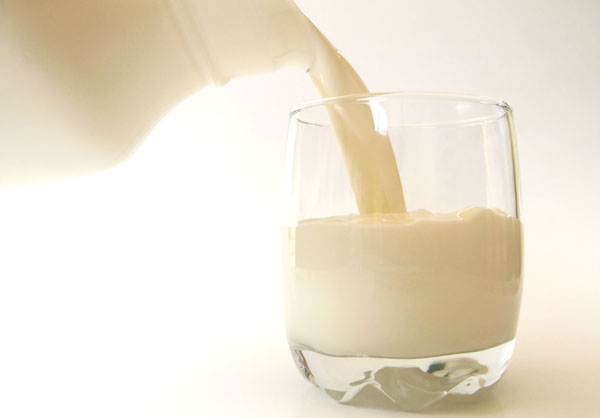Use of cow's milk to prevent HIV
Whether you love or hate cow's milk, cow's milk is always a great source of calcium and vitamin D. Today scientists think they can exploit cow's milk to protect people from HIV.
Researchers have found that cows may have been used to produce antibodies against viruses that cause human immunodeficiency (HIV). The cows are not infected with the virus itself. A team from the University of Melbourne teamed up with Australian bio-engineering limited liability company Immuron to develop the milk.
Scientists led by Dr. Marti Kramski, vaccinated pregnant cows with an HIV protein and studied the first amount of milk that cows produced after childbirth.
The first milk, called colostrum, naturally attaches to antibodies that protect the newborn cow from infection. The cows injected with protein produced HIV antibodies in their milk.

"We were able to harvest surface HIV antibody proteins from cow's milk ," Dr. Kramski said.
We tested these antibodies and we had lab results showing that these antibodies bind to HIV and inhibit the virus from infecting human cells.
HIV antibodies from cow's milk will be developed into a cream called microbicide, which will be put into the vagina before and / or after sex to protect the woman from risk of sexually transmitted infections.
Other biocides are being developed all over the world but antibodies in this study are made easier and cheaper, providing a new strategy to block HIV.
'We hope that anti-HIV antibodies will be user-friendly, women will be easy to control and an effective tool for the prevention of sexually transmitted HIV infection' , Dr. Kramski to speak.
About 30 million people are living with HIV globally and no vaccine is available for humans. This study is supported by Australia and Hepatitis Virology Research HIV Center (NHVRC) and NHMRC (clinical trial center).
Dr. Kramski and her colleagues are currently developing plans for animal and human research.
This work is funded by Fresh Science, a national program funded by the Australian government. The study is published in the journal Antimicrobial Agents and Chemotherapy (Journal of Antibiotic and Chemotherapy).
- Happy hormone injections for cows help make milk more delicious and nutritious
- Cows with formal names will give a lot of milk
- Transgenic dairy cows produce human milk
- Genetically modified cows make milk safer
- Cow 'for human milk'
- Breeding cows for milk is useful for users' health
- Argentina produces 'super milk' to prevent cancer
- Cowsitis and reproductive cows
- If you want more milk, name it
- 6 reasons you should drink soy milk
- 2017- Year of head implants, milk processing without cows
- How to drink milk many people don't know
 Green tea cleans teeth better than mouthwash?
Green tea cleans teeth better than mouthwash? Death kiss: This is why you should not let anyone kiss your baby's lips
Death kiss: This is why you should not let anyone kiss your baby's lips What is salmonellosis?
What is salmonellosis? Caution should be exercised when using aloe vera through eating and drinking
Caution should be exercised when using aloe vera through eating and drinking